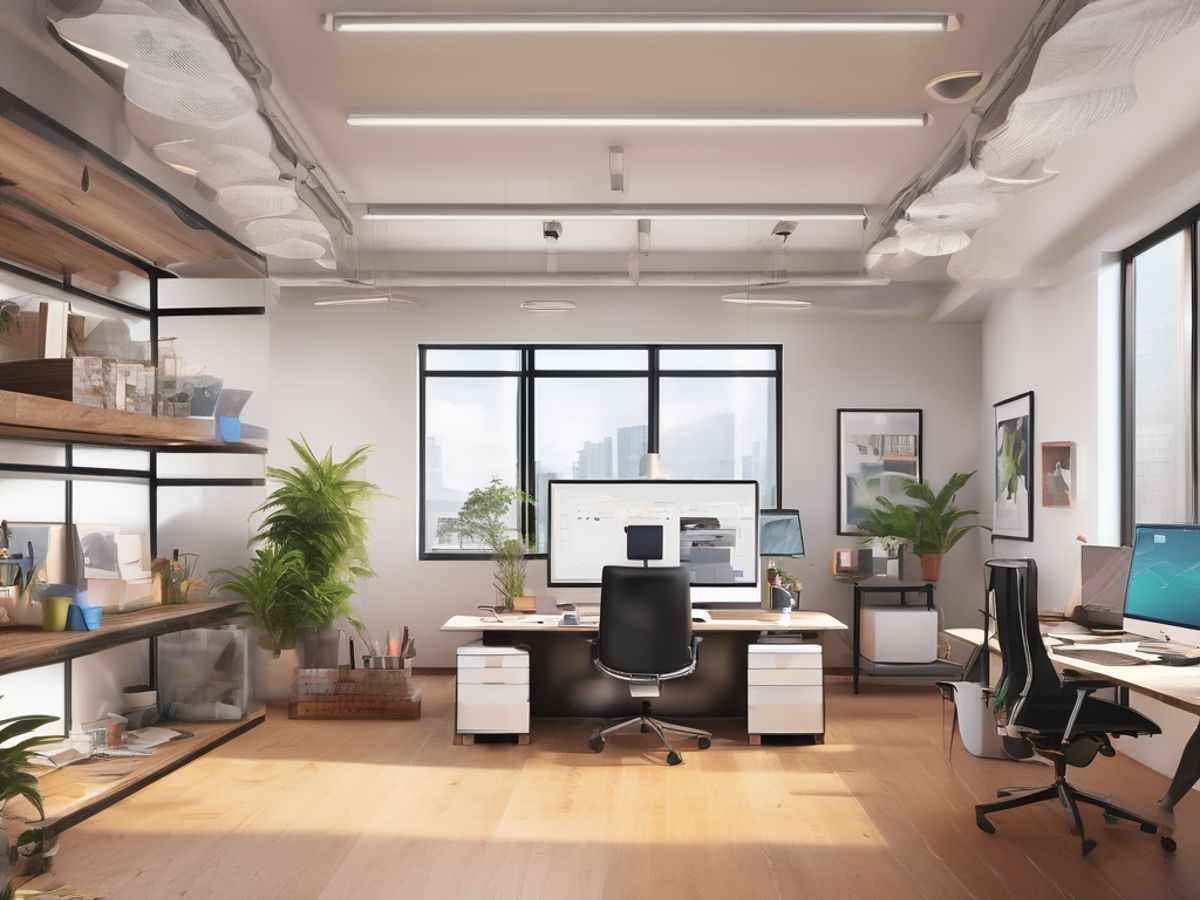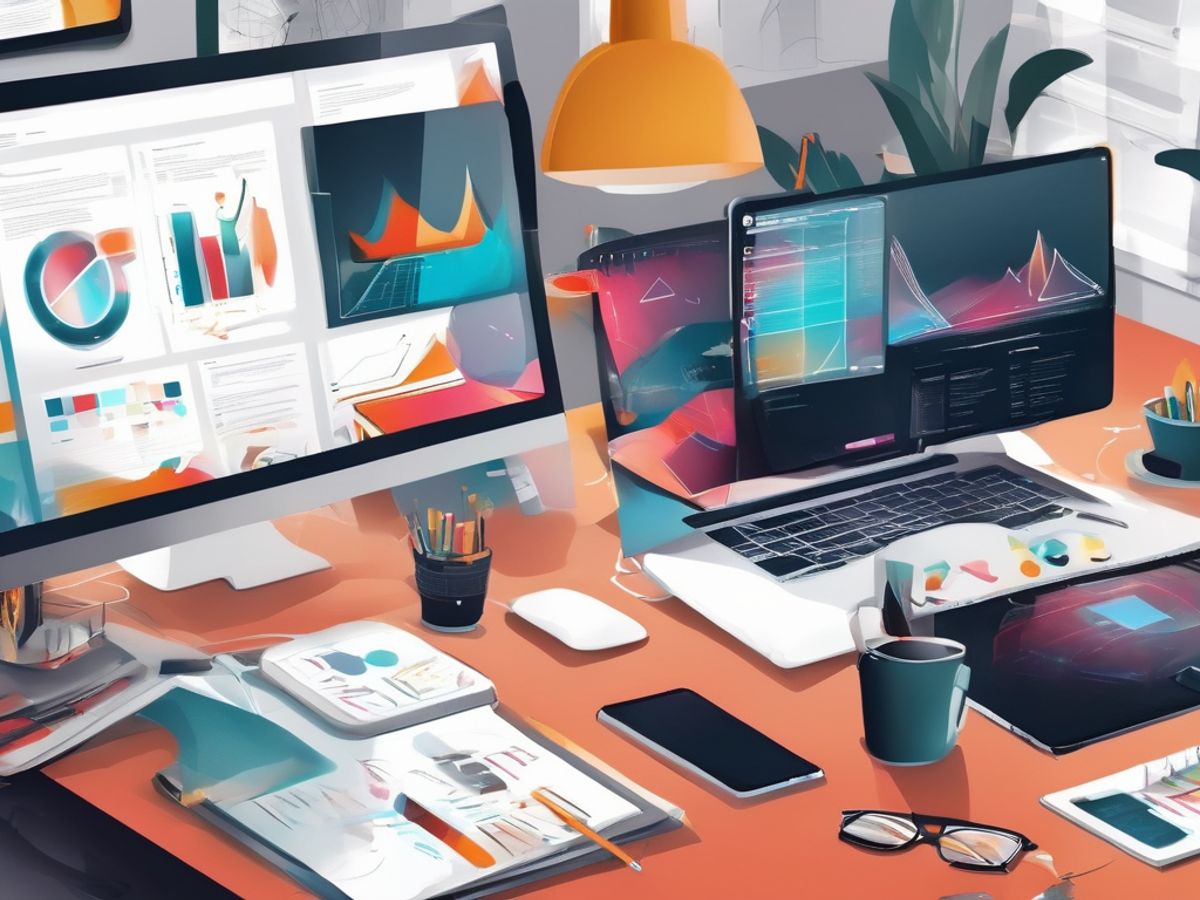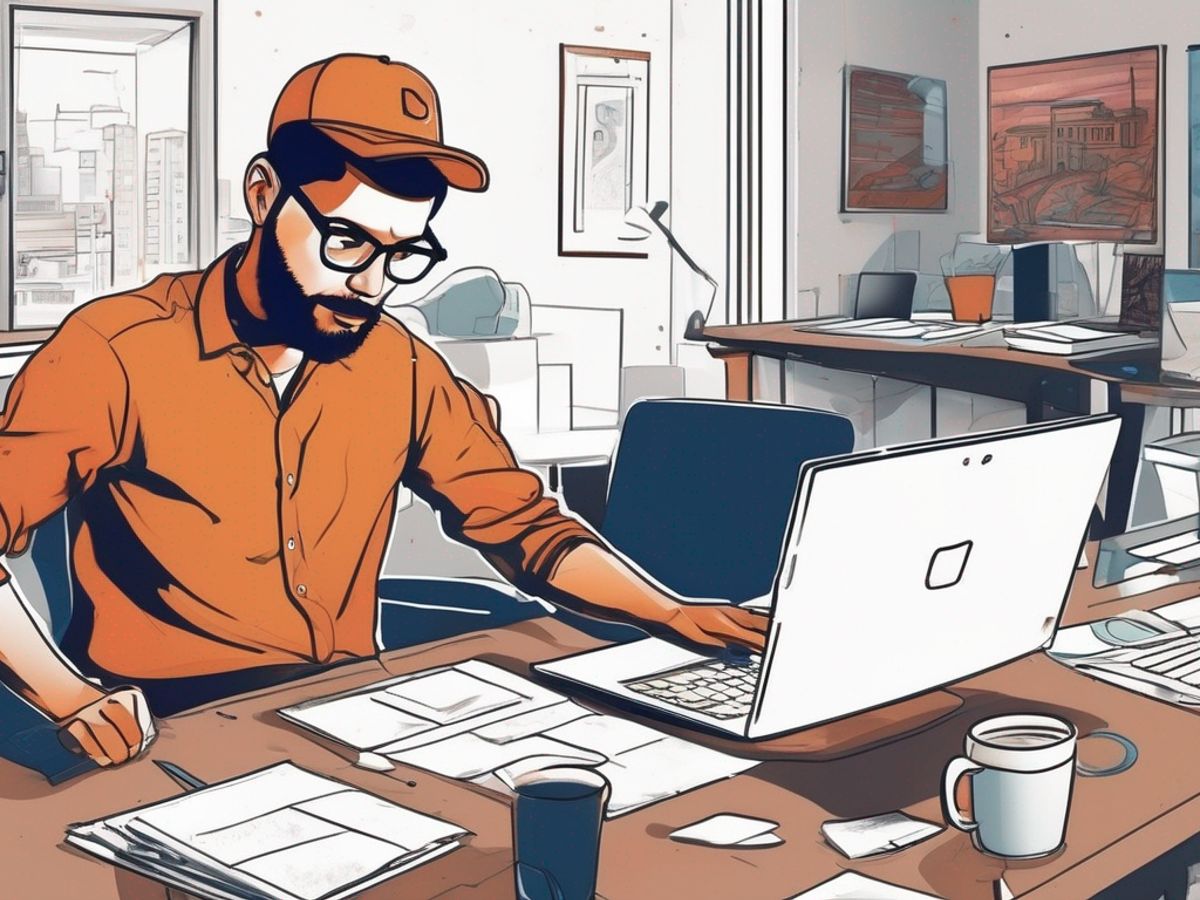Choosing the right WordPress web designer near you involves more than just finding someone with the right skills; it also includes considerations like location, communication, and support. This article will guide you through the key factors to consider when selecting a web designer to ensure they meet your specific needs and expectations.
Key Takeaways
- Understand the importance of a designer’s proximity and their knowledge of the local market.
- Evaluate the designer’s technical skills and review their portfolio for WordPress-specific projects.
- Ensure clear communication and responsiveness to maintain a smooth workflow.
- Read reviews and testimonials to gauge past client satisfaction and designer reliability.
- Discuss budget, pricing, and after-support services to avoid any hidden costs and ensure long-term support.
Understanding the Importance of Location
Proximity and Local Market Understanding
When we choose a WordPress web designer, considering their proximity can be crucial. Being close allows for a better grasp of the local market and consumer behavior, which is essential for tailoring a website that resonates with local audiences. Local insights can significantly enhance the relevance and impact of a website.
Accessibility and In-Person Meetings
Accessibility is another key factor. The ability to meet in person can streamline communication and project execution. It fosters a more collaborative environment where ideas can be exchanged freely and issues can be resolved swiftly. This is particularly important when immediate feedback or urgent changes are needed.
Supporting Local Businesses
By opting for a local web designer, we not only benefit from their expertise but also contribute to the local economy. Supporting local businesses fosters community growth and sustainability. It’s a way to ensure that the benefits of our investments stay within the community, helping to boost local employment and innovation.
Evaluating Technical Expertise and Portfolio
When choosing a WordPress web designer, it’s crucial to delve into their technical expertise and the quality of their portfolio. This not only showcases their experience but also gives insight into their capability to handle various project demands.
Assessment of Previous Work
We always start by examining the designer’s previous projects. This helps us understand their approach to problem-solving and their ability to meet client expectations. Reviewing a portfolio can reveal a lot about a designer’s style and the effectiveness of their solutions.
Technical Skills Specific to WordPress
WordPress has its unique set of technical requirements. We look for designers who not only have a broad understanding of web development but also possess deep knowledge of WordPress itself. This includes familiarity with themes, plugins, and the latest updates.
Creativity and Customization Abilities
The ability to customize and inject creativity into projects is what sets a great designer apart. We prioritize designers who demonstrate innovative thinking and show a range of styles in their portfolio, ensuring they can tailor their approach to suit our specific needs.
Considering Communication and Responsiveness
Effective communication is crucial when working with a WordPress web designer. We must ensure that our designer is not only responsive but also clear in their communication. This ensures that both parties are on the same page throughout the project, minimizing misunderstandings and speeding up the decision-making process.
-
Importance of Clear Communication: Clear communication forms the backbone of any successful project. It’s essential for ensuring that the designer fully understands your vision and requirements.
-
Response Time and Availability: A responsive designer can significantly influence the project’s momentum. We should expect our designer to reply to our queries within a reasonable timeframe, typically within 24 hours.
-
Handling Feedback and Revisions: It’s important that the designer is open to feedback and capable of implementing revisions efficiently. This flexibility helps in refining the project to better match our expectations.
Establishing a clear and agreed-upon communication protocol at the beginning of the project is crucial. This sets the tone for a smooth workflow and helps in building a professional relationship.
Analyzing Reviews and Testimonials
Gathering Insights from Past Clients
When choosing a WordPress web designer, it’s crucial to gather insights from past clients. This can be achieved by reading detailed reviews and testimonials which provide a real-world glimpse into the designer’s capabilities and client satisfaction levels. For instance, platforms like Google My Business and Trustpilot offer a wealth of user-generated reviews that can be instrumental in making an informed decision.
Understanding the Impact of Positive Reviews
Positive reviews often act as a strong endorsement of a designer’s skills and professionalism. They not only enhance the designer’s credibility but also instill confidence in potential clients about the quality of service they can expect. It’s beneficial to analyze these reviews to understand the specific aspects of the designer’s work that clients appreciate, such as responsiveness, creativity, or technical expertise.
Learning from Negative Feedback
Negative feedback, while less desirable, is equally important. It provides critical insights into areas where the designer may need improvement. Addressing these concerns proactively can help in choosing a designer who is committed to continuous improvement and client satisfaction. It’s essential to look for patterns in negative reviews, as these can indicate recurring issues that might affect your project.
Discussing Budget and Pricing Structures
When choosing a WordPress web designer, it’s crucial to discuss budget and pricing structures early in the process. This ensures that both parties have clear expectations and can determine if the partnership is financially feasible. Understanding the different pricing models and what they include is essential for making an informed decision.
Understanding Pricing Models
Various pricing models exist, ranging from flat rates to hourly billing. Here’s a quick overview:
- Flat Rate: A single fee for the entire project.
- Hourly Rate: Charged based on the time spent on the project.
- Subscription-Based: Ongoing payments for continued service.
Each model has its pros and cons, and the right choice depends on the project’s scope and your long-term needs.
Negotiating Terms and Conditions
Negotiating terms and conditions is more than just agreeing on a price. It involves understanding what is included in the price and what isn’t. For instance, some designers might include SEO and content writing, while others might charge extra. Here are some potential questions to ask:
- Is domain registration and hosting included?
- How many revisions are allowed?
- What happens if we exceed the agreed-upon hours?
These questions help avoid surprises and ensure that both parties are on the same page.
Ensuring Transparency in Billing
Transparency in billing is crucial. We advocate for clear, itemized invoices that detail what you are paying for. This not only helps in tracking expenses but also in verifying that you are getting what you paid for. A transparent billing process builds trust and can prevent conflicts.
Note: Always check the fine print in any contract to understand fully what you are committing to financially.
Exploring After-Support and Maintenance Services
Importance of Ongoing Support
After launching your WordPress website, ongoing support is crucial to ensure its continuous operation and relevance. We prioritize long-term partnerships with our clients to provide sustained assistance and updates, ensuring your website remains secure and functional.
Types of Maintenance Services Offered
We offer a variety of maintenance services tailored to your needs, including security updates, troubleshooting, and performance optimizations. Our services are designed to keep your website up-to-date and running smoothly, which is essential for maintaining user engagement and security.
Handling Updates and Security Issues
Regular updates and proactive security measures are vital to protect your website from vulnerabilities. We handle all aspects of updates and security, from software patches to malware scans, to ensure your website is protected against the latest threats.
Checking Compatibility and Work Ethics
When choosing a WordPress web designer, it’s crucial to ensure that their work ethics and business values align with ours. This alignment fosters a productive working relationship and ensures that both parties share the same commitment to quality and ethical standards.
Aligning Business Values
We prioritize finding a designer whose business values resonate with our own. This alignment is essential for maintaining a harmonious relationship and ensuring that the project outcomes meet our expectations. It’s beneficial to discuss values such as transparency, sustainability, or community involvement to gauge compatibility.
Work Style Compatibility
The compatibility of work styles cannot be overstated. We look for designers who complement our project management approach and communication style. This compatibility ensures smoother interactions and more efficient project execution. Questions about their project management philosophy or tools they use can provide deep insights into their work style.
Long-term Relationship Potential
We aim to build long-term relationships with designers who are not just looking for a one-time project but are interested in growing with us. Assessing the potential for a long-term partnership can be indicative of their commitment to quality and client satisfaction. We consider their responsiveness to feedback and their willingness to adapt as projects evolve.
When it comes to ensuring a seamless collaboration, checking compatibility and work ethics is crucial. At Marco Mundo, we prioritize aligning our methods and values with your business needs to guarantee a productive partnership. Visit our website to learn more about how we can help your business transition from ‘Meh’ to ‘Yeah!’ and don’t hesitate to contact us for a discovery call.
Conclusion
Choosing the right WordPress web designer near you involves more than just finding someone with the right technical skills; it requires careful consideration of their communication style, flexibility, and understanding of your specific needs. By taking into account the insights and tips provided in this article, you can make an informed decision that aligns with your business goals and ensures a successful web design project. Remember, the right designer will not only create a visually appealing website but also contribute to the strategic success of your online presence.
Frequently Asked Questions
What should I consider when choosing a local WordPress web designer?
Consider their understanding of the local market, proximity for in-person meetings, technical expertise, portfolio quality, communication skills, responsiveness, client reviews, budget compatibility, and after-support services.
How important is it to hire a local web designer?
Hiring a local web designer can be crucial for better communication, understanding of the local market, and potential in-person collaboration, which can enhance the effectiveness of your project.
What are the benefits of reviewing a WordPress web designer’s portfolio?
Reviewing a portfolio helps assess the designer’s creativity, technical skills, and experience in handling projects similar to yours, ensuring they can meet your website’s specific needs.
How do client testimonials impact the choice of a web designer?
Client testimonials provide insights into the designer’s reliability, quality of work, and client satisfaction, helping you gauge their reputation and the success of their previous projects.
What should I discuss regarding budget and pricing with a web designer?
Discuss detailed pricing models, potential additional costs, and negotiate terms to ensure clarity and transparency in billing, aligning the project’s scope with your budget.
Why is after-support and maintenance important in web design?
Ongoing support and maintenance ensure your website remains updated, secure, and functional, addressing any issues that arise post-launch to maintain performance and security.



